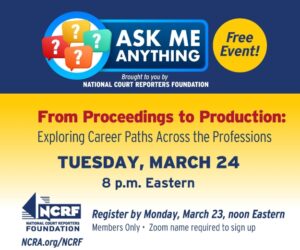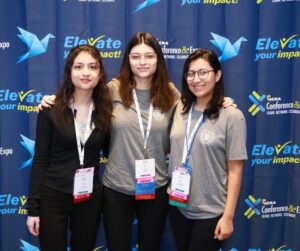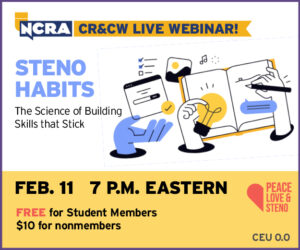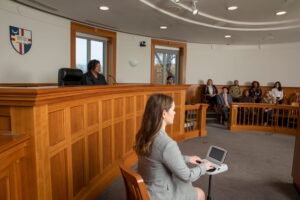When Sammi Ta was in high school, she discovered a “secret” language in a library book. She started using it to take notes in class and soon found out that her mother had learned the same language, Gregg shorthand, growing up in the Philippines. Later, Ta found Plover, the open-source steno engine, and taught herself machine writing as well. Now she’s in her 200s and staring down the RPR.
UTS | You say you learned Gregg shorthand in high school. Is that a common course in Canadian high schools?
ST | I don’t think so; it was more of a hobby as well in this case. I’ve been intrigued by the world’s languages and writing systems, and this one especially so with its “secret” nature as a system that not many people know about or are able to read.
I found out about it from a library book that my school happened to have lying around — I’m not sure exactly how I found it, but I may have just spent a long time browsing — and later learned that this was a thing my mom was familiar with, as she and some of her siblings learned it in school in the Philippines. I guess you can say steno runs in the family.
UTS | What do you love about stenography?
ST | I love writing fast, and I especially love the idea of being able to write as fast as someone is talking. Even when I was just learning steno as a hobby, getting to the point of my typing speed was a big upgrade to my productivity, because it meant I could chat, write emails, and do all sorts of other tasks faster and with less physical effort than typing. I also love the amount of flexibility I have to write words my own way and basically create my own theory and even be able to write steno in languages other than English.
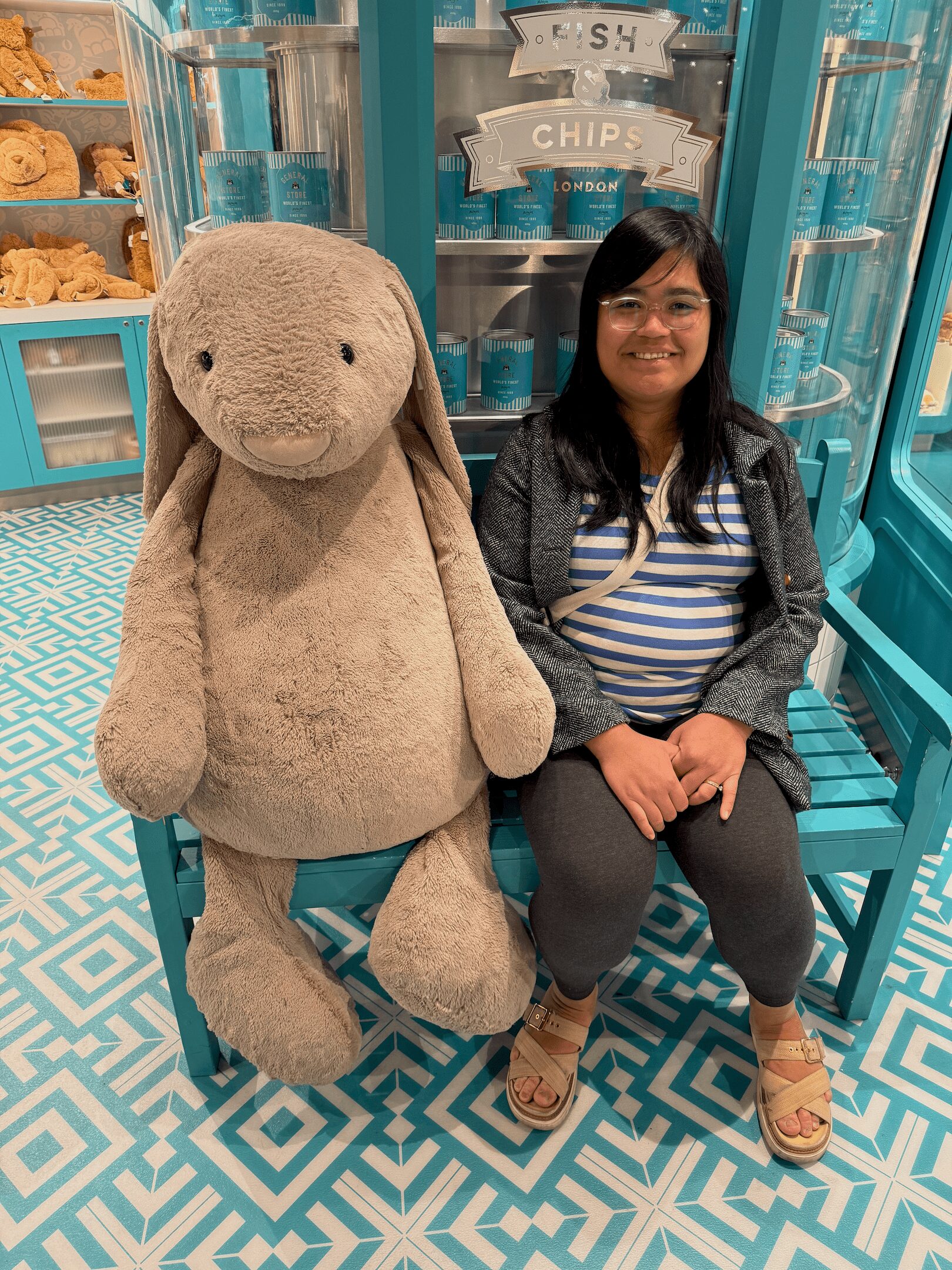
UTS | You’ve had an unconventional steno journey – learning steno on your own and then entering a program with your own theory. If you had to do it all over again, would you go a more conventional route?
ST | I’m pretty happy with how things turned out. The Plover community is full of amazing people who have been really helpful from the beginning, and I’ve also contributed back to the community in some respects, such as developing tools and learning resources and pushing for Plover to be allowed for NCRA tests. I love how open the community has been to innovating, for example additional steno keys or coming up with whole new theories. It’s exactly my flavor of nerdy, and I wouldn’t have it any other way.
UTS | Having a background in tech, what’s your take on the future of court reporting and the role technology plays?
ST | I think it’s nothing to worry about. Having seen it develop in the last few years, yes, it has improved significantly. But to get from that to the point where it can reliably be used for everything from legal proceedings to technical talks and lectures, when you’re dealing with multiple voices and accents and people mumbling or talking over each other? It will be a very long time, if at all.
UTS | You have attended three NCRA Conferences. Which has been your favorite so far and what would say is the value for students in attending these conferences?
ST | That’s a hard question. I loved all of them, and I will continue to go to more. (At least next year won’t be ridiculously hot.)
This is a very small field that not a lot of people know about, so you really do want all the connections you can get. Conference is a great opportunity to meet students and professionals who are always very eager to share their experiences and give you advice for getting through school or working in the field. Professionals are also always excited about students attending, and the encouragement I’ve received has been keeping me going through school.
UTS | What are your other hobbies – besides stenography?
ST | Languages are a big one. (Some people might count steno as sort of its own language as well, I’ve noticed.) I haven’t ever formally learned a language, in school or with a tutor, but I did study a bit of linguistics in university, and I’ve picked up bits and pieces of quite a few languages. Really helpful as well for another hobby, which is travel. I like visiting new cities, trying the local food, taking the local transportation, not doing the touristy things, and just seeing people go about their days. Being mistaken for a local is surprisingly fun.
Sammi Ta, originally from Toronto, Ontario, Canada, currently lives in San Francisco, Calif., and is a student at SimplySteno.
Missed previous issues of Up-to-Speed? Access them here.

